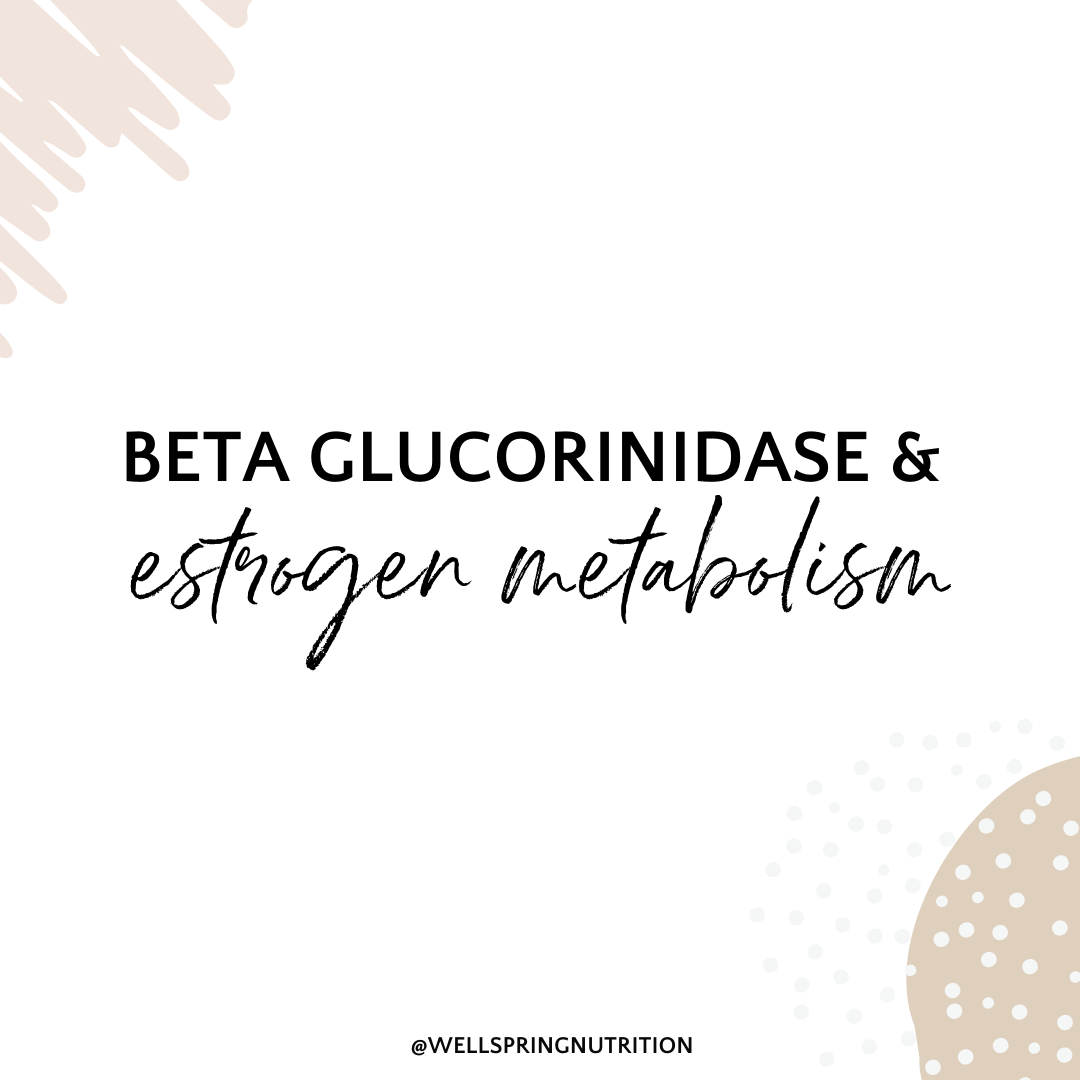Registered dietitian, functional nutritionist, & your new fertility BFF. I'm passionate about helping women thrive during preconception, pregnancy, and postpartum.
Nutrition
PCOS
Fertility
View All
Explore the blog
Hi, I'm Anabelle
Non-toxic Living
Work with our team
5 Ways Gut Health Impacts Fertility
One of my favorite parts about working in functional nutrition is that I get to take a deeper dive into the root causes of health issues. Fertility is something that is so interconnected to every system in the body, that we sometimes forget that something that may seem totally unrelated, could actually be the root of everything else. That’s why I’m excited to talk about how gut health specifically impacts fertility.
he gut impacts your entire body – from modulating risk for chronic diseases like heart disease, diabetes, and cancer, to impacting your mood, anxiety and depression. There is A LOT of research happening these days around gut health, and there’s more coming out every day about how the gut microbiome impacts fertility.
What is the Microbiome?
So first, let’s talk about what the gut microbiome actually is. The gut microbiome is essentially all the bacteria that live inside your digestive system, specifically the large intestine. In the gut there are 100 trillion bacteria cells – more cells than our body’s own cells!
While there can certainly be bad bacteria that cause infections and disease, there’s also a whole host of beneficial bacteria that work hard to digest and absorb our food, signal neurotransmitters to our brains, fight inflammation and boost immunity.

The microbiome impacts:
- Energy levels
- Mood, stress and brain health
- Digestive health
- Immune function
- Skin health
- Inflammation
- Weight
- Hormones
Keeping our microbiome happy is essential for almost everything else happening in the body! The problem is, for many of us our gut balance between good bacteria and bad bacteria is way off. Whether you’re having obvious digestive symptoms (gas, bloating, constipation, diarrhea, etc.), or something else is going on in your body – you likely need to take a closer look into the health of your microbiome.
5 Ways Gut Health Impacts Fertility
One of the most clear connections between the health of your microbiome and fertility, is through the regulation of sex hormones, namely estrogen.

Gut Health and Hormone Balance
Estrogen is a hormone that the body makes, uses and then needs to get rid of. It goes through three phases of detoxification to be able to remove it from the body. The last step in the process is controlled by the gut microbiome.
There’s an enzyme in your large intestine called Beta glucuronidase, and it’s responsible for unpacking estrogen and allowing to it be re-circulated and re-absorbed in the body.
When you have high levels of B-glucuronidase, it’s usually a sign that you likely have excess estrogen in your body (estrogen dominance) and may have even experienced some of these symptoms, like menstrual cycle problems, painful periods, heavy bleeding, etc.
Signs of Estrogen Dominance:
- Mood swings/mood instability
- Water retention
- Difficulty losing body fat
- Acne and skin issues
- Irregular periods or anovulatory cycles
- Painful cycles
- Low sex drive
- Difficulty building lean muscle mass
- Poor recovery from exercise
- Sleep issues
When our bodies can’t eliminate excess estrogen through the GI tract it actually impairs fertility because it throws off the ratio between estrogen and progesterone, and ultimately causes a higher risk for miscarriage.
Remember, any dysbiosis prior to pregnancy is also going to worsen during pregnancy, so it’s a good idea to work on your gut health prior to conceiving.
According to a recent review, without a healthy microbiome, estrogen metabolism and function becomes impaired and can lead to a number of health consequences including endometriosis, PCOS, endometrial hyperplasia, and infertility.
Authors of this review concluded that treating the gut microbiome to modulate estrogen levels should be considered as a new future treatment for estrogen-mediated diseases including infertility.
Gut Health and Weight
The gut microbiome has been associated with higher pre-pregnancy weight as well as more weight gain during pregnancy. We know that excess weight impacts fertility, and researchers have found that those who are overweight have a different microbiome, with different types of bacterial strains than their normal weight counterparts.
There’s evidence that higher calorie diets rich in sugar and processed foods actually skew the balance of microbes. In fact, a recent study showed that the diversity of these microbes can be influenced by diet within just 24 hours!
Diets based in fruits, vegetables and plenty of fiber support the microbiome, whereas the Standard American Diet (SAD) has been shown to be detrimental to the microbiome.
Gut Health and Thyroid
As mentioned earlier, when there is an imbalance in the microbiome, it impacts immunologic and metabolic functions. A study in 2015 found that hypo- and hyper-thyroidism was associated to small intestinal bacterial overgrowth (SIBO), and another study in 2019 found an association between dysbiosis and thyroid cancer and thyroid nodules.
Since your thyroid health is so important for not only all metabolic function, but also fertility, it’s important to take this into consideration.
An under-active thyroid can impact fertility in a few different ways:
- Decreased cellular energy – meaning less mitochondria (your cell’s powerhouse) on ovarian cells, causing irregular or absent cycles.
- Increased prolactin – which suppresses ovulation by blocking the release of FSH
- Decreased insulin sensitivity – more insulin in the blood increases androgens, which can disrupt ovulation and is especially detrimental for women with PCOS
Gut Health and Inflammation
You don’t need to have inflammatory bowel disease to have inflammation in the gut, or your gut causing inflammation in other parts of the body. For example, if you have intestinal permeability (aka “leaky gut”), there could be bacterial products entering the blood stream, causing your immune system to attack them and cause chronic inflammation.
Since inflammation is linked to so many chronic diseases and infertility, this is an important link to consider.
Gut Health and Pregnancy Complications
Research has shown the poor gut health was associated with higher risk of preeclampsia, gestational diabetes, and preterm birth. The microbiome has also been looked at for infant health and studies have shown a connection between imbalances in the microbiome with increased risk of eczema, asthma, and allergies. A healthy microbiome will also contribute to your baby’s immune function, inflammation, and healthy weight throughout their life.
How Do I know if I need Help with my Gut Health and Fertility?
So by now I’m sure you’re convinced that gut health plays a major role in fertility. But how do you know if taking a daily probiotic is enough? Ask yourself:
- Have I been suffering with digestive issues for years (this is just my new “normal”)
- Do I often fluctuate between feeling constipated or having loose stools?
- Are there foods that I avoid because I can’t tolerate them?
- Do I have frequent acid reflux?
- Do I have signs of estrogen dominance? (heavy period, PMS, excess weight and weight loss resistance, etc.)
If you answered yes to any of these questions or you just feel that it’s time to take a closer look into your gut health, then set up a free discovery call with me to see how functional nutrition can help you on your fertility journey.
And let me know in the comments below what was surprising for you about this blog post!
References
- https://www.ncbi.nlm.nih.gov/pubmed/28778332
- https://www.ncbi.nlm.nih.gov/pubmed/25564410
- https://www.ncbi.nlm.nih.gov/pmc/articles/PMC4216449/
- https://www.ncbi.nlm.nih.gov/pmc/articles/PMC4137456/
- https://www.ncbi.nlm.nih.gov/pmc/articles/PMC4845518/
- https://www.ncbi.nlm.nih.gov/pmc/articles/PMC2701523/
- https://www.ncbi.nlm.nih.gov/pubmed/28388917
- https://www.ncbi.nlm.nih.gov/pubmed/30584647
- https://link.springer.com/article/10.1007%2Fs12020-014-0509-2
- https://www.ncbi.nlm.nih.gov/pubmed/32070720
- https://www.ncbi.nlm.nih.gov/pubmed/32064643
- https://www.ncbi.nlm.nih.gov/pubmed/32063084
Leave a Reply Cancel reply
The Preconception Playbook
This free playbook provides specific actionable tips to get started on your fertility journey, as well as what to avoid while you're trying to conceive.
Get the free playbook
Functional nutrition for women & couples trying to conceive
Get the Preconception Playbook
Actionable tips to get started on your fertility journey, as well as what to avoid while you're trying to conceive.


I was very surprised to find out how gut health is linked to infertility! I was also blown away by the info revealing how gut health may be the reason for my endometriosis which connects to infertility. So many things in this article make sense and have provided me with some REAL answers that have HEALTHY solutions to fix my main problem of endometriosis/infertility!!!! Thank you!!!
So glad you found the article helpful!
I am very surprised how gut connect with
hormone and then fertility
Anxiety, stress and depression